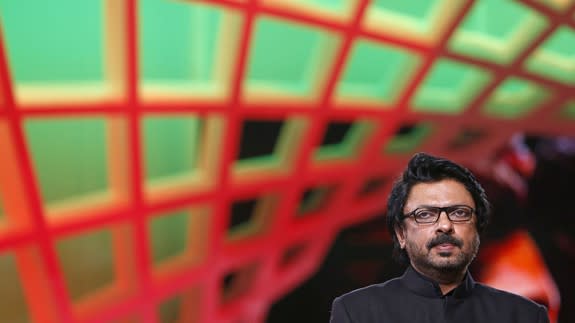5 times when intolerant India had a problem with Bollywood

The multi-million dollar Hindi film industry, popularly known as Bollywood, has been troubled of late. Not by falling footfalls or depleting budgets or any of those typical concerns that plague showbiz. But by a rising 'intolerance' towards its stories and subjects and also the people behind them.
SEE ALSO: Teenage Bollywood actor faces vicious social media abuse and no one knows why
The latest to be hit, literally, is ace filmmaker and National Award winner Sanjay Leela Bhansali, who reportedly invited the ire of fringe religious groups in northern India for having touched upon a subject considered sacrosanct.
The attackers claimed that he was "distorting history" in his upcoming film Padmavati, which narrates the story of a 14th century Rajput queen. Without any access whatsoever to the yet-unreleased film's script, it was perceived that it showcases an illicit romance between the pious Hindu queen Padmavati and a menacing Muslim invader Alauddin Khilji.
And that, by India's orthodox moral standards, is a strict no-no. The film's lead actors have denied any such "distortion".
As Padmavati I can assure you that there is absolutely no distortion of history.#Padmavati
— Deepika Padukone (@deepikapadukone) January 28, 2017
Historians say that Padmavati was a work of fiction to begin with. It hardly matters though if she was real or imagined, but the fact that a storyteller is struggling to express himself in a democratic society is disturbing.
Here are more instances in recent years that point towards a striking disapproval of Bollywood when it doesn't toe the conventional line.
When Karan Johar apologized for working with Pakistani actors
In October 2016, prior to the release of Karan Johar's Ae Dil Hai Mushkil, there was massive outrage over the inclusion of Pakistani actors in the film. So much so that political groups in India's entertainment capital of Mumbai threatened to stall the release of the film. The producer-director Johar, one of the most high-profile figures in the industry, had to give in to the demands, and promise that he would never work with Pakistani actors again.
A blanket ban was imposed by the government on artistes and content from Pakistan.
When Shah Rukh Khan promised that his Pakistani co-actor would not promote their new film

Image: RED CHILLIES ENTERTAINMENT / EXCEL ENTERTAINMENT
Because of the aforementioned ban, Shah Rukh Khan's recent film Raees, starring Pakistani actress Mahira Khan, generated a lot of pre-release buzz. The actor, though highly influential, had to give in to the demands of a local political party to ensure the film's smooth release. He promised that his Pakistani co-actor, despite being the female lead, would not be seen during the film's promotions. Now, that is not only disappointing but highly unfair. And the actress later went on to speak about it.
When Aamir Khan said his family wanted to move out of India
In November 2015, another megastar Aamir Khan invited the wrath of the masses for voicing his concerns about the security situation in the country. While talking at a public event, he confessed that his wife and family were "alarmed" and wanted "to move out" of India at one point.
He was lambasted on social media for his "unpatriotic" comments, and people threatened to boycott his films. Some even asked him to go to Pakistan, the usual right-wing barb on Twitter. Khan later clarified his statement and said that he "was born here... will die here."
Had he not done that, who knows how his big-ticket release in 2016 would have fared? But Dangal's blockbuster success ensured that the Aamir-should-leave-India debate has been put to rest. At least for now.
When Shah Rukh Khan's "misinterpreted" comments hit his film's box office collections

Image: RED CHILLIES ENTERTAINMENT / Rohit Shetty Productions
Aamir's peer, Shah Rukh Khan, wasn't as fortunate though.
It is believed that his statements on "religious intolerance" adversely impacted the collections of his 2015 film Dilwale. Angered by Khan's comments, several political groups and activists opposed the film’s screenings in Patna, Ghaziabad, Varanasi, Jabalpur and many places in Rajasthan.
Khan later went on to admit, "At some point of time, I do regret people could not understand what I said. It was not represented properly. If anybody feels bad about it, I regret it completely." But he also added, "I have not said anything that I should apologize (for). I will fall in my own eyes if I do that."
When a satire was nearly boycotted for being "anti-Hindu"

Image: UTV MOTION PICTURES / VINOD CHOPRA FILMS
In December 2014, another Aamir Khan film PK was branded "anti-Hindu" for its satirical take on Gods and Goddesses, blind faith, customs and rituals. Several theaters were vandalized by Hindutva outfits and they demanded a boycott of the film for allegedly hurting religious sentiments.
Strangely enough, PK went on to become one of the biggest hits of Indian cinema.
